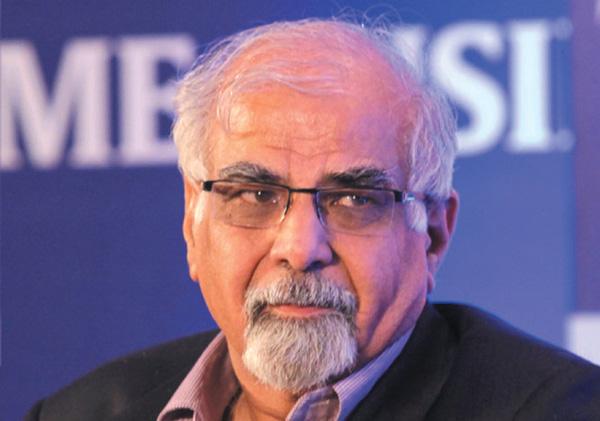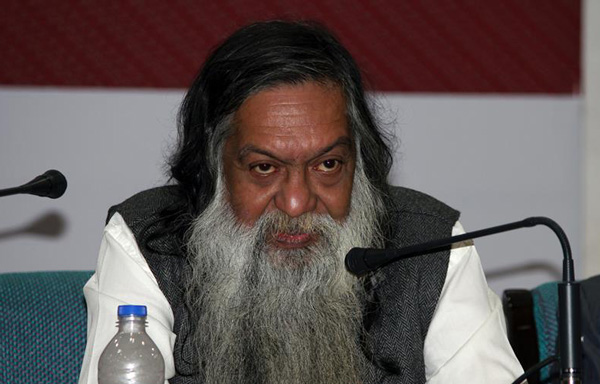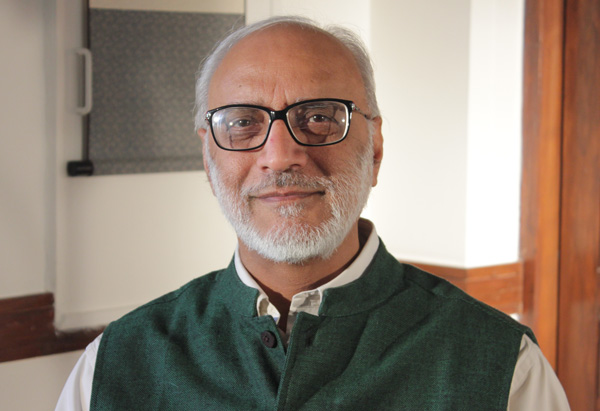Less talk, more work: what economists want from the NDA in 2016

Is the Indian economy out of the woods yet? The Narendra Modi government would have us believe it indeed is. It claims the country's GDP is growing by over 7%, the fastest in the world.
It hasn't been able to convince many economists, however. They point to various economic indicators to cast doubts on the growth figures.
How is it that the agriculture sector grew by 2.2% in June-September, a quarter marred by severe drought?
If the exports are down, the automobile industry saw only marginal growth and credit offtake is on a decline, then what accelerated the Indian economy so much that it surpassed China's?
Also read: Declining exports, few jobs, falling rupee: Is this 7.5% growth, Mr Jaitley?
These are tough questions for a government that was elected on the promise of strengthening the economy. Perhaps, this year would usher in more clarity on our economy, its management and guiding policy. Indeed, that's what the experts are also hoping for.
A clear policy though would only be a start. Given the largely gloomy mood of the industry, investors and experts, concrete measures would be needed to get the economy buzzing again.
But what could such measures be? Catch asked some of the country's most renowned economists. Here is what they want in 2016.
Surjit Bhalla, Chairman of Oxus Investments

Change in labour laws
Goods and Services Tax
Bankruptcy and Insolvency law
Reduction in interest rates
Bhalla argues that the current labour laws are undermining the country's potential. "If you look at what has been holding India back, it's the labour market. The companies face restraints in hiring and firing the workforce, which affects ease of doing business," he says.
Also read: #EcoSlowdown: why is the real estate sector in such gloom?
Yet, the central government has left it to states to change their laws to give companies "more flexibility" in dealing with their workers.
What's holding India back? Labour market. Hiring & firing restrains affect ease of doing business: @surjitbhalla
As for the Bankruptcy and Insolvency Code, introduced in the last winter session, it must be passed at the earliest. "The absence of bankruptcy laws also affects the ease of doing business because there's no exit route for the investors," Bhalla explains.
On the GST, Bhalla says the opposition would eventually have to let it pass since "even the liberal newspapers and intellectuals have started criticising it for not allowing the bill to".
High interest rates are making capital too expensive, thereby discouraging Indian companies from investing. But with food inflation coming down, he hopes the RBI "will take a call on reducing the cost of capital".
Abhijeet Sen, Member of the erstwhile Planning Commission

Economic federalism
No debt bailout for corporates
According to Sen, what a vast and diverse country like India needs the most to progress is "economic federalism". That's what the Planning Commission, by acting as a bridge between the Centre and the states on economic matters, was helping to bring about, he says.
Also read: Going for broke: how NDA's new code could fix India's bankruptcy regime
The commission's successor, the NITI Ayog, has failed to do that, Sen says. "They got rid of the Planning Commission, whose role was to give ideas to the central government on how the economy is perceived by the states. This government talks a lot about federalism, not too much has been heard about this idea on the economic front," he complains.
"Though the finance ministry gets to hear something about the fiscal deficit and tax collection of the states, this is not the real economy. And something needs to come in to fill that vacuum."
On the heavy indebtedness of the corporate sector, Sen says many of them are hoping this government would bail them out by either writing off their debts or reducing the interest rates. "Ideally, the government should say that there would be no bailout," he adds. "Some companies will lose as a result but the government must focus on investing in the economy rather than on bailing corporates out."
And not just economically, it would be a wise move politically as well, Sen argues. That's because debt is a concern not just for the industry but of a lot of farmers as well "but nobody is doing anything for them".
"Also, I believe the Reserve Bank is doing a great job in managing the interest rates and the government should not try to bring the rates down artificially," Sen says.
Sen wants the government to draft a "clear roadmap" on where it's going to spend the money on. Currently, there is a tussle going on between the Centre and the states on social sector expenditure. While New Delhi is giving states a higher share of taxes, it wants them to spend this additional money on central social welfare schemes. The states are reluctant, however, and want the Centre to take responsibility for social welfare schemes.
"The government needs to be clear about the sectors it wants to spend the money on and identify which sectors will yield growth, whether those are social welfare sectors or some others."
Ashok Gulati, Former chairman of the Commission for Agricultural Costs and Prices

Improve rural demand
Introduce crop insurance
Reform food and fertiliser subsidies
The key to improving the economy lies in fixing the problems of rural India, says Gulati. The country is facing another severe drought and the farm sector is in a shambles.
Also read: Why Rajasthan's labour laws are a peek into India's bleak future
"It is going to be a tough year because for two years farmers have suffered badly. Rural demand for industrial products has come down," he adds. "And remember the 'Make in India' mission also depends on the revival of rural demand."
"Five year ago," Gulati continues, "the demand for industrial goods was coming from rural India. Today, the tractor demand has gone down by 23%. And how many cars can the urban elite buy? They can't buy 10 cars each. So, it's very important for the government to focus on the rural economy because that is where the real growth for industrial sector is."
Considering that much of our agriculture is dependent on the increasingly volatile monsoon, Gulati stresses the need for crop insurance. "We submitted a detailed plan for introducing crop insurance for farmers nearly six months ago but the government has not taken any action on that," he adds.
Gulati also criticises this government's method of compensating farmers. "The transfer of money to states is not based on scientific analysis of crop loss but rather on the discretion of the central government. Moreover, the time taken to disburse the compensation is too much."
Another reform that Gulati wants is reduction in food and fertiliser subsidies.
"Currently, the government spends so much on subsidies that it's not left with any money to invest in the agriculture sector," he explains. "Also, it needs to introduce direct benefit transfer for food subsidies to check pilferage in the distribution system."
DK Joshi, Chief economist at CRISIL
Implement schemes such as UDAY and Indradhanush
Introduce Goods and Services Tax
For Joshi, 2016 is the "most crucial year for this government". He explains, "This is the only year when it will be able to push through reforms. After this, it will be forced to take populist measures."
Also read: Modi's labour reforms are the wrong fix. Here's why
Joshi wants the GST introduced as soon as possible. But while it's stuck, he says, the government should "take forward" schemes such as Ujwal Discom Assurance Yojna, or UDAY, and Indradhanush.
2016 is the only year this govt can push through reforms. After this, it'll be all populism: DK Joshi
UDAY is intended to bail out heavily indebted power distribution companies, whereas Indradhanush is a scheme to revamp public sector banks.
"And the government should be able to implement these easily because they do not require the parliament's approval," Joshi says.
Clearly, the Modi regime has much to do in 2016 to get the economy going again. The question is: will its economic mandarins actually get to work, or will they make do with excuses and exaggerated claims as they did in 2015.
Also read: Stop asking RBI to cut rates Mr Subramanian. Arrest food inflation first







![BJP's Kapil Mishra recreates Shankar Mahadevan’s ‘Breathless’ song to highlight Delhi pollution [WATCH] BJP's Kapil Mishra recreates Shankar Mahadevan’s ‘Breathless’ song to highlight Delhi pollution [WATCH]](https://images.catchnews.com/upload/2022/11/03/kapil-mishra_240884_300x172.png)

![Anupam Kher shares pictures of his toned body on 67th birthday [MUST SEE] Anupam Kher shares pictures of his toned body on 67th birthday [MUST SEE]](https://images.catchnews.com/upload/2022/03/07/Anupam_kher_231145_300x172.jpg)






